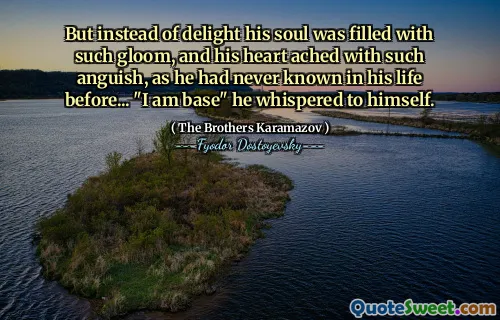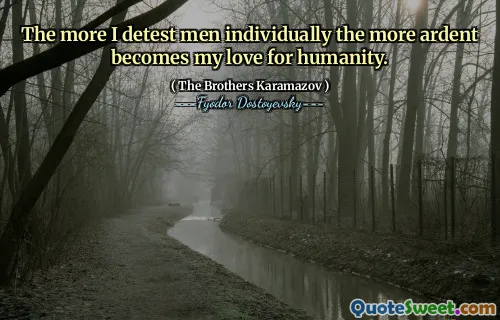
I want to travel in Europe, Alyosha, I shall set off from here. And yet I know that I am only going to a graveyard, but it's a most precious graveyard, that's what it is! Precious are the dead that lie there, every stone over them speaks of such burning life in the past, of such passionate faith in their work, their truth, their struggle and their science, that I know I shall fall on the ground and kiss those stones and weep over them; though I'm convinced in my heart that it's long been nothing but a graveyard.
This passage vividly captures the profound reverence for those who have passed away and the enduring legacy of their lives. It touches on the paradox of travel and exploration—geographically wandering through Europe while spiritually revisiting the memories and ideals of those buried there. The author recognizes that the destination is just a graveyard, a place that signifies the end of mortal existence, yet perceives it as invaluable because of what the dead represent: a testament to human passion, faith, dedication, and the relentless pursuit of truth. The imagery of kissing the stones and weeping over them evokes a sense of deep respect and emotional connection to past generations, acknowledging the sacrifices and the fervent spirits that drove their endeavors. Their lives, immortalized in the stones, serve as inspiration and confirmation of the enduring human spirit amid mortality. Moreover, this reflection resonates universally, reminding us that while life is transient, our pursuits—our love, science, work, and convictions—leave behind a legacy that defines and elevates human existence. It is a poignant meditation on mortality, legacy, and the eternal imprint left by those who have dedicated themselves to meaningful causes. The idea that even as one journeys physically, one also embarks mentally and spiritually into the sacred history held by these graves—which are more than mere resting places but symbols of life's passion—strikes a deep chord within the human consciousness.











